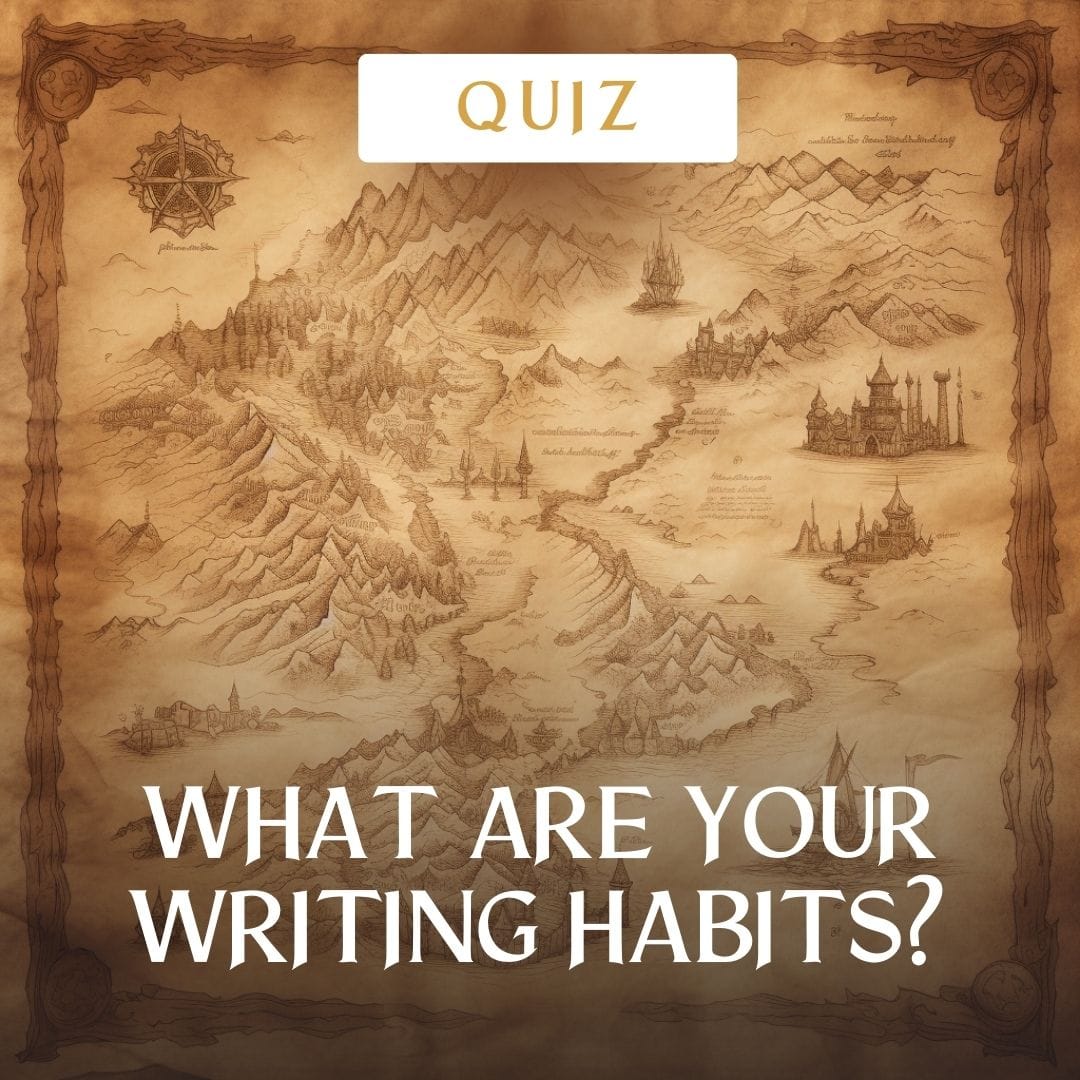A simple book trailer can do wonders for your book. As a generation, we absolutely love video, and they are fantastic ways to introduce people to all the hard work you’ve put into making an engaging story.
Some of us authors have plenty of money to invest in making a trailer that can look incredible, as legit as an actual movie. Of course those are the best kinds.
The rest of us basically have no budget, so we need cost effective or free options. Naturally, the downsides to that is we’re stuck having to do everything ourselves.
I’ve been making trailers for national tours and products for several years. Years ago, I accidentally discovered that every trailer has three parts. After that it became easier to develop them.
In this article I’m not going get into the nitty-gritty of making a trailer.
I want share with you some of the wider concepts that will help your book trailer stand out from the pack, and actually work for you rather than against you.
And of course, it has to be easy on the wallet, because we don’t have much to invest with yet.
First, lets start with two key points.
1. Who is Your Audience?
No one writes a book for everyone.
Every book needs a targeted audience for multiple reasons.
- You will know how to write about your topic. Writing for lawyers as opposed to children or homebound moms are very different markets.
- You will be better able to market it. And not you, publishers want a clear audience so that they can take it straight to the ones most likely to be interested.
- You will connect with the people best able to appreciate your story. Too many bad reviews or unfinished readings come from the wrong person picking up your book. Make it clear for everyone.
A trailer has to come from the same place. It can’t be for everyone, the same way that a novel can’t be for everyone.
Right from the get-go, a viewer should be able to tell from the tone, music and probably even the title of the video who the target audience is.
2. Viewers First Impressions & Time
A poorly made book trailer can do more harm than good, for a couple of reasons.
- If it’s too slow, and takes too long, people stop watching and leave.
- If the trailer doesn’t understand the 3 significant parts to a trailer, and the reason for a trailer in the first place, folk will leave.
- If it’s badly put together with corny music, or cheap visuals, then viewers probably won’t buy your book.
Having a bad book trailer could make things worse for your book, because it’s a first impression. We all make first impressions within 7 seconds, and usually decide within the first 15 seconds of any video if its worth watching.
Think about that for a second. As a species, and especially our generations today, we’ve pretty much adapted to filter out as a default. We’re very good at learning to ignore stuff, because there is so much to think about or get through.
We decide within 7 seconds if we want to trust the video, and in the next 7 seconds, if it’s worth our time.
That’s not a lot of time. So book trailers have a lot to accomplish, especially if you’re used to seeing them slowly cycling through phrases and photos in an iMovie template.
So let’s start at the most important part; what are the 3 parts of a book trailer, and what is a trailer supposed to be doing?
The 3 Parts to a Book Trailer
A trailer is like a novel, or a story. It starts with a hook, develops that thought and then brings it to a ‘climax’. Of course, unlike a book, a trailer is a teaser, designed to hold your attention long enough to whet your appetite.
Orson Scott Card’s non-fiction book ‘How to Write Science Fiction’ speaks to the four kinds of story, handily grouped by the acronym M.I.C.E; Milieu, Idea, Character, Event.
1. The Hook
This is what goes into your first 15 seconds, what you use to keep viewers watching. Using Card’s concept, you can decide the primary theme of your book.
- Is it primarily a milieu story, where the novel primarily explores a world or a culture, or a time period through the eyes of a character? Think ‘Gullivers Travels’ or ‘Dinotopia’.
- Is it a an idea story, where the story is dramatizing and questioning an idea through the adventures of the characters? ‘Jurassic Park’ is a great example.
- Is it a character story, where the prime focus is on the interplay and development of people and their personalities? ‘Pride & Prejudice’, for example.
- Is it an event story where the primary attention is something happening to which the characters must react? ‘Independence Day’, or ‘San Andreas’.
Each one these types of stories invites its own hook. A book trailer – especially one not made up of luscious video – has to rely on lines of text, music and maybe a voiceover to keep you watching.
Book trailers have to captivate with an idea, to transition from the eyes straight into the mind and grab their interest.
So here are some suggestions for how to hook your audience, depending on the type of trailer:
- MILIEU STORY: Sometimes these begin with ‘Imagine a world where [fill in the blank]’. This is your chance to make them go ‘what a cool idea, I can imagine that sort of world.’
- IDEA STORY: Often these begin with the thought central to your novel. Sometimes a philosopher’s quote, or a maxim, or line from a character. The rest of the trailer starts to unpack that concept.
- CHARACTER STORY: Jump straight into brief descriptions of your characters, one-liners are best, because they are the ones who are carrying the story. They better be interesting enough to put into a simple line, so that a viewer will start thinking “Ok, I could imagine spending time getting to know that person.”
- EVENT STORY: Lead with the event itself, usually with a focus on more concrete details. ‘On September 4th, the world split in half.’ You are working hard to arrest their attention with a big idea, no extra thinking needed.
Remember, if this was a movie trailer, and not a book trailer, you could approach these things differently. But books are largely theaters of the mind, and the mind deals in ideas.
We need to be moving the action from a passive eye-viewing to the more active mind-viewing.
2. Develop That Thought
Now that you’ve intrigued your audience, they’re willing to see where you’re taking them. What more can you tell them? A good trailer is no more than 2 minutes, and the best are a minute to a minute and a half.
That’s not a lot of time.
One of the biggest sore spots in many book trailers is an author’s fear of sharing too much information. Now is not that time.
A good blurb is about a 100-150 words, and often follows a solid formula like this:
Most fiction book blurbs start with a situation (a),introduce a problem (b) and promise a twist (c). They usually end with a sentence that emphasizes the mood (d) of the story. (17 Tips on How To Write a Blurb That Sells)
Your trailer needs to follow the same format. Now is not the time to pull back into vague generalities, throwing single adjectives, or floating thematic words across the screen.
Every second counts. We need to know more. Introduce us to the characters that we should care about, and then show us what starts happening to them as the book begins.
I remember reading somewhere that a good blurb has the confidence to share the first third of the book’s events. Roughly. That should cover the beginning steps on the Hero’s Journey; the call to action, the acceptance of the call, what trouble it starts landing him in as a result.
With that information, no spoilers are being revealed. Allow the readers to connect more closely with the characters, and get a solid sense of where the novel is going.
Work to achieve the same thing with your trailer.
As you can already see, langorous editing isn’t going to hold water any more. Making a tight, effective trailer is hard work. You have to balance the music with the images and the timing of the text.
3. The ‘Climax’
Don’t slow down! Keep up the energy as you head into this last stretch. Here is where a couple of important points could be used;
- state the audience and theme of the book
- the best testimonial you have, especially from a creditable source
- display the cover of your book
- display your name and any relevant credentials
- have your website prominent and any pertinent contact/ordering details
Most trailers end with a question, which is often a good idea. The problem is that with too many book trailers, we haven’t been given enough information to care about the answer.
This climax of your trailer is the whole reason your trailer exists; to pique interest and get them over to your site to read more, check out the blurb, pore over any sample chapters, and see what others have said.
Voiceovers, Music, & Video
As we covered already, a promotional video, an ad, or a book trailer – yes they’re all the same thing – has some challenges to overcome if we want it to resonate and work for our book.
2 minutes is a good length, 1 minute is best. The first 15 seconds are key to keeping them watching the rest of the trailer.
Now of course, a lot of this depends on the amount of quality in your trailer. If we can instantly tell that a trailer is extremely well done, we are more ‘forgiving’ and willing to keep watching.
Regarding the prevalent theme of DIY slideshows that most authors default to;
Poor editing makes them way too long and they just plod along to the bitter end. The main reason why they don’t work is that viewers’ tastes are more sophisticated these days. You are competing with what they see on network tv, cable, etc. Some examples of really bad trailers are here and here. Book Trailers And Using Video For Book Marketing
We should certainly take cues from the best to inspire how we approach our own.
Check out your favorite books; how do they write their blurbs? How are really successful book trailers put together?
And don’t expect to be able to make a cinematic masterpiece. Book trailers on a budget like ours are a different beast.
2. Voiceovers
Having a voiceover is a phenomenal way to engage the viewer – and get through more content faster.
But not all of us are happy with the sounds of our own voices, much less able to sell our books.
There are some cool options available, such as hiring a voiceover through Fiverr. You provide the text, they record it and send it back to you. You may be able to get a round of revisions in, but I’ll leave you to explore that.
Fiverr is valuable for inexpensive services, just always ensure you hire a level 2 or Top Level specialist. You can better guarantee a good experience.
Most jobs will start at $5, but depending on the amount of words you need recorded, it can run a little higher. Still, that’s a small expense.
3. Music
For those who aren’t interested in a voiceover, there’s more pressure on having solid text, great visuals and clean audio.
There are plenty resources available online for free, creative commons music, and you may be already familiar with them.
The problem that I have with many of them is either unclear licensing, or they sound like they were cooked up on a synthesizer, or they’ve already been used by other people. I far prefer to find a good piece of music, and invest time and interest in finding a ‘soundtrack’ for my book.
I’m serious. I have a couple of sites that I browse when I’m looking for a soundtrack, because I know I’ll use it later for a trailer, and also to be able to share with my readers the musical inspiration going into my book.
The advantage of purchasing professional music is an edge over others; the music is often a higher quality, and often more unique. Like you, I don’t have the money for expensive stuff, so here are my top three favorite websites for finding music:
- Audiojungle: unbeatable prices, and often plenty of amazing pieces.
- PremiumBeat: more expensive, but the quality is a cut above Audiojungle.
- Jewelbeat: has some fun albums with great pieces.
- Musopen: Free classical music. The quality varies, so you’ll have to do a lot of hunting.
4. Video
I absolutely love a book trailer built on a backbone of video.
But… I don’t recommend it if it can’t be done well. See, a book trailer is a first impression of your book, and frankly, if it looks like a high school project that you created with your camcorder in the back yard, I assume that your book is going to be the same.
If you’ve already made book trailers, you know how hard it is to find good footage. Sites like
often have options you can work with. But I’m going to go out on a limb and recommend not using actual people.
Unless they’re absolutely perfect for your book.
My reason for that is that the people you use in your trailer can define how readers approach the characters in your novel. And you’re going to find it very hard to find the right face. You already had that issue in coming up with your book cover.
So my recommendation is to do one of two things;
- Scour your favorite sites for royalty-free footage of characters that you can use. Ensure that they are high resolution, beautiful footage. Your book trailer should never look cheap; some investment now will help convince buyers later.
- Don’t use video. Focus on the text you need to communicate, with beautiful, thematic backgrounds, and perhaps a couple of photos.
Avoid trying to fit too much into your trailer.
Don’t waste your precious trailer time panning over a photo of a scene, or leaves on trees. Every second has to count if you’re trying to keep your viewer focused.
You’re probably familiar with Animoto and how easy it can make video editing for you. It allows you to upload multiple audio tracks, perfect for a voiceover and a purchased soundtrack.
It’s pricing is low, so if you budget right, you might well be able to put together a good trailer for under a $100, perhaps even under $50.
If you’re really creative, I’m sure you could do it for free with the amount of free materials available to you.
Wrapping Up
After everything I’ve said, there will always be other ways of doing a trailer that can work extremely well for you.
Some trailers feature a voiceover of the main character reading the opening lines of the book. That can work really well, if the lines are particularly powerful. And so on.
You’re now in a far more exciting and stronger place than you were twenty minutes ago. Or if you’re like me and a skim reader, then 5 minutes ago.
Let me stress a last time the keys to a good trailer;
- Quality, Quality, Quality. Always go for something that looks the best it can be. It’s the first introduction that readers can have of your book.
- Are you creating the best first impression of your book? If your trailer is the first impression a reader gets, the quality, type and mood that you establish is critical.
- Don’t make a slow trailer. It’s too easy to lose people; you want a trailer that will keep them hooked till the last second.
- Don’t use poor artwork. It’s better to use less photos or footage of better quality, than to try to stack in plenty of lesser quality.
- Don’t summarize the first chapter. That’s not what this is for. Better to provide an overview of the first third of the book.
- And at the same time, don’t be so general that the viewer is still unclear where this book is actually going.
Let me reiterate; don’t expect to be able to make a cinematic masterpiece. Book trailers are their own genre of video.
You would be better served in stringing together a series of titles with great music that communicates the story in a clean and powerful way, than diluting your first impression with weak footage and photos.
So let me know below what you think! Have I missed something? Do you have a favorite trailer?



Solid advice. Thank you! I’ve really enjoyed creating trailers for my two books. I dislike the synthesize, canned music that is overused, and I agree that finding something fresh or original works well. Also, I’ve found great (free) video clips on videoblocks.com.
Thanks Carolyn! :D Glad you enjoyed it. It’s a challenge making a good trailer. Thanks for the videoblocks mention. :)
This is great advice!! Thanks!!
Fantastic. :) Thanks Julie!